Another type of time travel - watching "Back to the Future".
Netflix forces me from time to time to return to the production which once belonged to my favorites and then I never came back to them. This time I decided to watch - after years "Back to the Future". A movie I once absolutely loved. And today, well ... is a good example that in pop culture has changed a bit more than we think.
The story does not require a special summary, but let's try - the hero of the film is Marty McFly, a boy we don't know much about. What we know is that he has a beautiful girl and a not-so-perfect family. His father is a scumbag and a loser who doesn't like confrontation. The mother drinks too much and lives mainly with memories, and the uncle has not left prison yet. Older siblings have poor jobs and little success among the opposite sex. McFly is a typical boy who dreams of a big car and a weekend alone with his girlfriend. The only thing that distinguishes our hero is the fact that he is friends with a slightly crazy doctor Emmett Lathrop Brown. How do they know each other and why are they friends - the film doesn't explain it. It is certain, however, that Dr. Brown figured out how to go back in time (or possibly jump to the future), which meant that the hero is moved to the day his parents met. McFly finds himself in a rather paradoxical situation in which he must lead to his parents for their first date.
I will not complain about the special effects (surprisingly quite good) or the concept of time travel and how much can be changed in the past. Personally, I am of the opinion that there is no point in thinking about these issues - because in the end it is not so important in the case of an adventure movie. Nobody watches 'Back to the Future’ to think about the possibilities and consequences of time travel. What struck me was three things - first of all - how much the film explains the plot to the viewer (every now and then reminding him what exactly must happen) secondly - how very one-dimensional characters inhabit this production and thirdly - how disturbing the message of this movie is. And actually how it was wasted.
Let's start with the first element - of course, movies always explain to viewers a bit what will happen next. Especially popular movies, which are important for the viewer not having to spend too much time associating the facts. But the Zemeckis production actually from the very beginning - before the action starts gives the viewer, many times a very simple solution to all subsequent problems of the characters. The scene where McFly learns exactly which day, at what time in which year the city clock stood is a good example. It is a scene completely devoid of grace and context. Its only context is to give the viewer a message that will be useful to him later. There are more such scenes in the film. And it's amazing how much from today's point of view you can see this simpler narrative (the very plot of the film is very simple and very linear - without many side threads).
The second thing is the heroes - I completely did not remember the characters. I never thought about it because I thought it was a cool movie and for a long time it was enough for me. Meanwhile, while watching, I realized that each of these film characters has only one feature. Marty McFly is so normal and a bit feisty, his father is a loser, Brown is crazy, Biff is not a high school bully but a regular thug (this is a movie in which we have a scene from which it is evident that Biff will try to rape Marty's mother and his colleagues don't respond.) It is similar with women. Marty's mother is looking for a boy at all costs and either imposes herself or she is a lady in trouble. In addition, nothing else represents her, we don't even know exactly what interested her. In turn, Marty's girlfriend, Jennifer has virtually no role except that she is pretty and likes our hero and encourages him to act. Although I must admit that it is still better than what happens with her at the beginning of the next part. Jennifer, who finds about moving to the future, asks only about her wedding dress and she's so annoyed that Professor Brown put her into sleep. What these films from the ’80s were fantastic in portraying women (only the third part has a more interesting female character). The one-dimensionality of the character makes the whole film surprisingly flat. Not that movies are not full of one-dimensional characters today. But usually they are not as successful as "Back to the Future." Popular superhero movies may use harmonious clues, but in the case of character creation, they try to add some ambiguous features to them.
And of course Marty is nice and charming in a way, but mainly because he is played by Michael J. Fox (who, of course, is not a teenager but is probably the most teen-looking adult actor I've seen in the movie). If we look closely at the hero, we will see that, in total, there are almost no movies about such boys anymore. That is, those who are supposedly losers, but have a beautiful, loving and supportive girl, a band, the ability to play the guitar and quite a lot of confidence. Marty is supposed to be a loser but in essence he is closer to a boy who could be a typical teenager. The only thing that distinguishes him is the fact that he is late for lessons and that he is friends with a crazy professor. Although the film does not explain how and why this friendship was born. Ultimately, the hero's ambitions come down to having a pretty girl and riding a cool car.
However, what touched me the most was the third issue. Well, Marty moving to the past has a chance to meet his parents. Theoretically, it's a fantastic idea - a boy from a family of losers, has the chance to go back in time and understand what made his parents what they are. Only that the film is not interested in making Marty understand his parents and see in them interesting people whose lives went this way and not because they were shaped by such and no other circumstances. Marty's action forces parents to change their history and eventually - when Marty returns home - he finds a changed family. Everyone was successful. Why? Well, because Marty's father punch someone at some point in his life. Sure - the circumstances in which he gave Biff a snout are the most right. In the end he behaved well defending women. But at the same time the movie seems to suggest that really sensitive and gentle guys who don't like confrontation grow into losers. In order for them to grow up to be successful people, they have to give someone a snap at the right moment. Because it means that their lives will definitely change. And they ultimately grow up not only for successful people but also for successful people who can finally beat someone by themselves.
What makes me sad at this ending is that the film doesn't actually use what could be the most interesting. Marty doesn't have to understand his parents at all. It doesn't matter that he met them in their youth. Today they are someone else. They are better and can fulfill his biggest dream - a car with four-wheel drive. Looking at this ending, I realized how much we are able to grow out of some clues of entertainment cinema. Many years ago, this ending seemed probably as perfect to me as for the hero himself. But now, looking at the last scenes, I feel horrified that the director adopts the teenager's way of thinking. Understanding your parents or even trying to get close to them is not important. Symbols of success are important - a large house, nice clothes, good work and a new car. The film suggests that now the hero's life is perfect. Because his parents are perfect. I mean wealthy and with professional success. Today, looking at this ending, I wonder how much better the movie would be if the hero returned to the same house he abandoned, but with an understanding of who his parents are and with the feeling that he can look at them differently from the angle of professional failure. But it probably wouldn't be a movie from the ’80s.
I honestly admit that this is the second time I reach for the entertainment cinema of the ’80s which I loved and I leave the screen with surprise - how much has changed. The movies are not only faster, and explain less to the viewers (which at some point will bother us when we stop being young), but they are a bit more complicated characters (it seems that even today very popular) and above all - regardless of my complaints - really different they approach women. What's more - only today it began to bother me. I just didn't see it before. I didn't think about how many heroines on the screen, how much they have to say, or whether they have any character at all. I do not hide, it is a surprise to me how much has changed here. Like people know that the world of film is changing, but when you go back to the old productions it only hits how far we have come. And how terribly screenwriters treated female characters in movies. Anyway, this is one of those moments when I become convinced that it is worth talking as much as possible about the need for a good representation of women on screens. Because it is thanks to our constant "complaining" that we are today in a world where even when shooting a series in the realities of the ’80s, like "Stranger Things", it must be created with care for a variety of woman characters. And it makes me incredibly happy. Because I realize that kids who are now watching their first adventure productions will not be fed with stories in which women mean nothing.
"Back to the Future" goes to me on the shelf, ’movies that have not aged too well’. Of course, if you watch it as part of an evening screening on Netflix, no one will be hurt. But in my personal film qualification, I have to take him out of the "cool production" category, where it hit when I was a kid watching Zemeckis's productions for the first time. It's always a bit sad when the movies we liked so much in our youth turn out to be harder to watch when we are adults, or when our consciousness as a viewer has changed. It's hard to part with something that really amused us. But on the other hand - if it means that we have grown up and the cinema has grown up, then maybe there is nothing to shed tears over.
Ps: I did not watch the third part again which I like and remember best, but I have the feeling that this - quite low rated part of the trilogy, in the end, has aged the least, and may well illustrate how much it changed when the ’80s changed into slightly different ’90s.
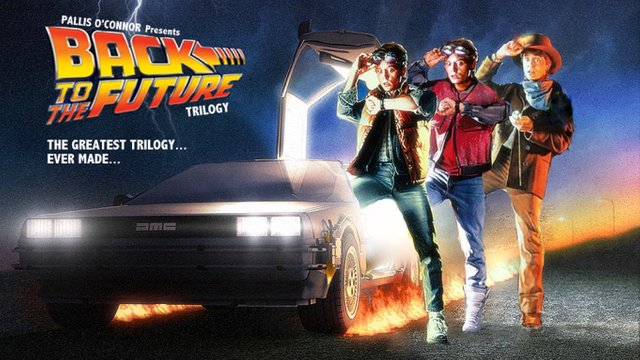
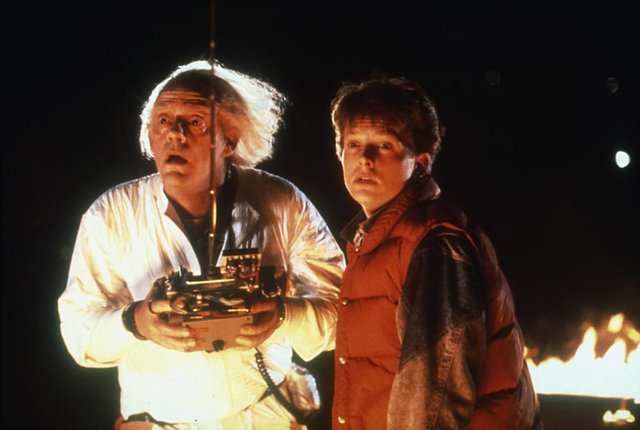
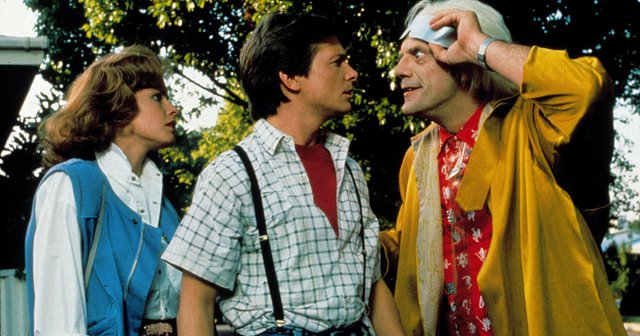
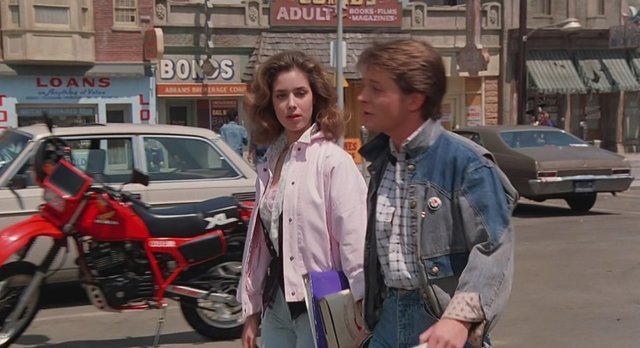
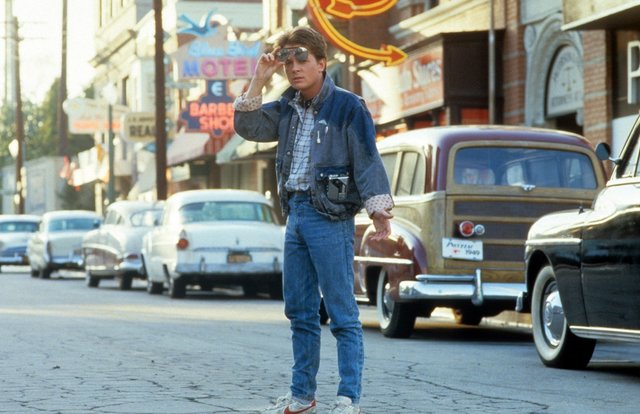
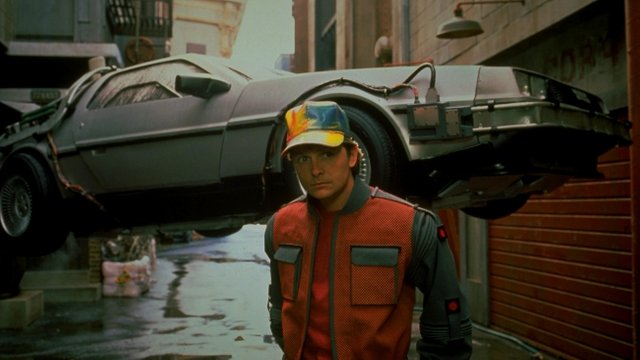
Hello! A pleasure♡
I think when we grow up, our way of seeing is more mature and always expects something new and with a lot of impression ... This movie was for me normal since I was little, now I see it super mega normal haha, there are thousands of tastes in cinetology...
I'm totally aware of that. But as I wrote in a post some movies still keep a high level even after years some become just simple entertainment. And of course, as many people as many tastes.
Thank you for sharing your thoughts and have a great day. 💚
Hi anaerwu,
Visit curiesteem.com or join the Curie Discord community to learn more.
Thank you @curie for your support after my long holiday break. It means a lot. And it's always a pleasure to write when others finding it interesting.